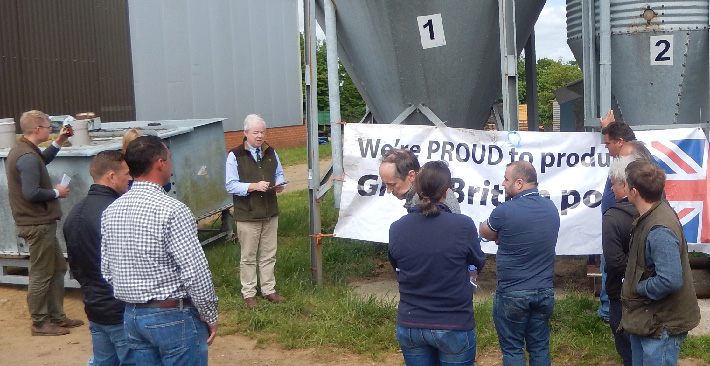A positive day for sellers with the SPP moving up by 0.73p to 147.94p, the influential German producer price has also nudged up by 2 cents to stand at €1.44, or 126p in our money.
Bacon pigs are getting scarce with most selling on contract and weekly contribution prices have been anywhere between stand on and plus 2p within the 140p-150p parameters.
Very few reports of spot bacon prices were available but trades were reported in the 150p-154p range, which is slightly ahead of contract. Cull sow prices have thankfully started to head north rather than south with a modest 2p rise this week with the two main export sow buyers pitching their prices in the 62p-66p range, according to load size.
A slight improvement in the value of the Euro has also helped as far as pig meat imports and exports are concerned with the Euro trading at noon worth 87.65p compared with 87.34p a week earlier.
Although the latest AHDB 30kg average has recovered all last week’s losses rising by £5.81/head and now stands at £53.31, the latest 7kg average has held at £37.64/head but these only tell half the story with the gap between spot loads of Red Tractor and Freedom Food weaners getting wider all the time due to a significant lack of finishing space as well as the crippling cost of straw.
However, the elephant in the pig industry room at present seems to be rising feed prices about which warnings have been sounded in this column over the past year, bearing in mind that in January UK feed wheat was traded on a spot basis at £135.80 compared with £154.90 today.
These price increases partly relate to concerns over weather conditions in Australia, Canada and Russia although growing conditions in the EU are generally reported as favourable.
The US and Australia has been dry but there are some reports of more favourable weather in the pipeline but the futures markets have seen London wheat trade firmer at £155.90/t for July and £156.55 for November. Protein prices have also remained firm with 48% Brazilian soya quoted ex store in Liverpool at £370/t compared to £304/t in early January.
And finally, good news that a recent survey of UK consumers has indicated that they would prefer to buy British where they can, but not at any price. With Brexit looming, we need to hope that we are not flooded with pig meat from countries with lower welfare standards at competitive prices and hopefully consumers will continue to recognise the benefits of supporting the UK agricultural sector in a post-Brexit world.




